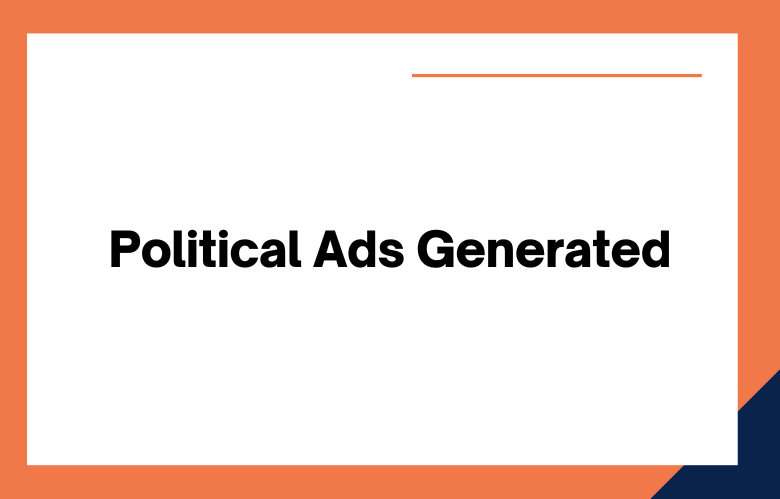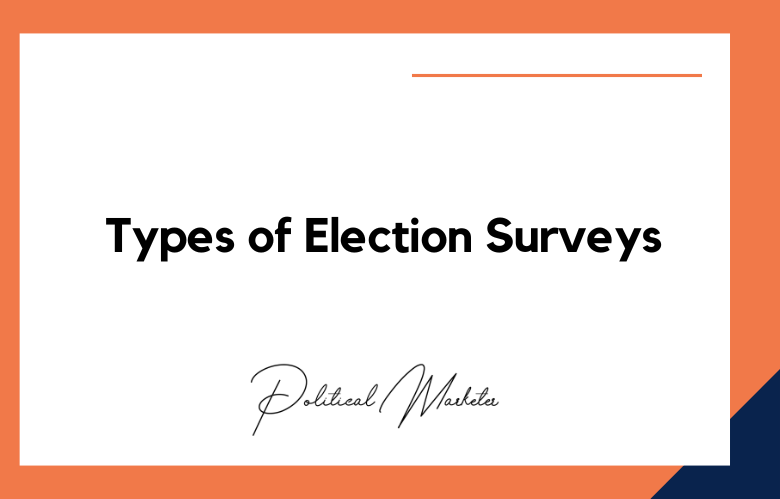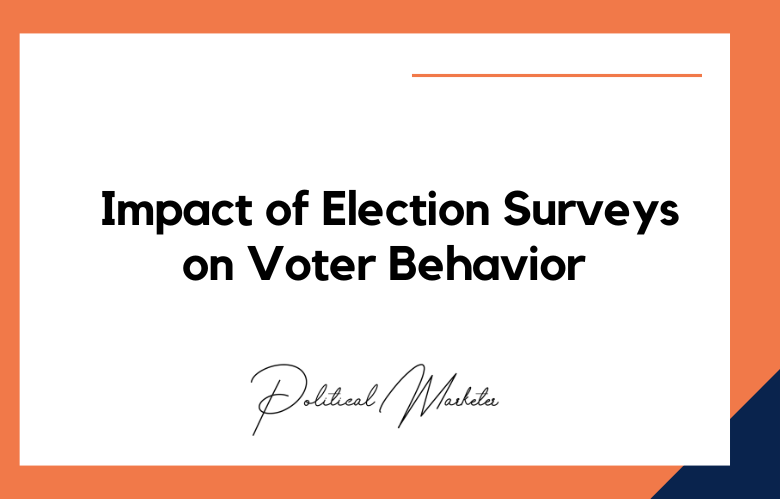Artificial Intelligence (AI) is becoming increasingly prevalent in today’s society. For instance, it is heavily utilized in advertising, with various companies using this technology to create personalized ads for their consumers.
Political campaigns have also started using this technology to gain an edge over their opponents and to reach out to voters in a personalized, targeted way.
However, the use of AI-generated political advertisements poses significant ethical concerns, particularly in terms of fairness, privacy, and manipulation.
What Political Ads Generated by AI Need to be Regulated?
We live in a world where Artificial Intelligence (AI) is changing our lives unprecedentedly. From voice-assisted devices to self-driving cars, AI is becoming increasingly ubiquitous.
And now, AI-generated political ads are joining the list. Political campaigns are turning to AI-powered systems to create ads tailored to individual voters.
While this seems logical to target voters, it raises crucial questions about the ethics and regulation of these types of ads. We will explore AI-generated ads’ impact on political campaigns and why they must be regulated.
Why Regulating AI-Generated Political Ads is Essential for Democracy?
The power of artificial intelligence (AI) has been rapidly growing, and political campaigns have already started using it in their advertising tactics.
The invention of AI-generated political ads brings new ways of delivering messages to voters, but it also raises concerns about the impact of these messages on democracy.
We will discuss why regulating AI-generated political ads is essential for democracy and what measures should be taken to ensure that these ads do not undermine the integrity of the democratic process.
The Problem With AI-Generated Political Ads
AI-generated political ads are lauded for their ability to reach voters that may be difficult to reach through traditional modes of political campaigning.
However, AI-generated political ads are concerning because they sometimes present a partial picture.
They can be biased and manipulate voters into believing a particular narrative. It’s important to remember that AI-generated political ads are still ads; they aim to market an idea or a person, even if it’s biased.
The Danger of Unregulated AI-Generated Political Ads
Without proper regulation, AI-generated political ads can be used as tools for disinformation and manipulation in the electoral process.
AI-generated political ads are particularly dangerous because they can easily be used to sway the opinions of large groups of people’s opinions in a relatively short time.
These ads can also target vulnerable groups, such as minority communities, to influence voting decisions.
The Importance of Fair and Transparent Advertising
Advertising should be fair and transparent. When political ads are being used to sway public opinion, they must be transparent in their messaging and fair in their tactics.
People should be able to make informed decisions about who they are voting for without being influenced by biased ads that may not necessarily present the entire story.
Proposed Regulation of AI-generated Political Ads.
The use of AI-generated political ads in elections is a relatively new phenomenon. As such, there has yet to be much regulation around this area.
However, some have advocated for regulations requiring disclosure of who is behind the ad, what data was used, and for how long. There is also the call to regulate AI-generated personality profiling to prevent the manipulation of voters.
How Can AI-Generated Political Ads Still Be Used Ethically?
AI-generated political ads have the potential to be used ethically. For instance, these ads could deliver tailored yet impartial information, encouraging healthy debate and democratic participation.
Ethical AI-generated political ads could also present a full spectrum of information about a particular issue instead of just presenting it from one viewpoint. However, implementing these measures would require upholding fairness, accuracy, and transparency principles.
The Need for Regulation in AI-Generated Political Ads.
As technology advances, almost every industry and aspect of our lives is being revolutionized. Politics, too, has yet to be immune to this change.
With the advent of Artificial Intelligence (AI), election campaigns are being tailored to reach voters through targeted political advertisements.
While this technology has proven useful, it has raised concerns over manipulating public opinion. Therefore, regulation of AI-generated political ads is required for the smooth functioning of electoral campaigning.
Understanding the Need to Regulate Political Ads Generated by AI.
As technology advances, political campaigns have become more innovative in advertising strategies.
One such advancement includes using Artificial Intelligence (AI) to generate political ads.
AI-generated political ads have risen, but the question remains: must they be regulated? We will explore why regulating political AI-generated ads is essential.
Best Practices for Political Ads Generated by AI need to be Regulated.
Fairness and Accountability
One of the primary reasons why AI-generated political ads should be regulated is transparency in decision-making. AI uses algorithms based on past user data to create propaganda that appeals to the audience’s interests.
However, this data could be based on false premises. Suppose an ad implies that a candidate has more support than they do. In that case, this could sway the person’s opinion based on false grounds and diminish the transparency that voters have the right to.
Regulating AI-generated political ads would ensure that accountability and transparency are not sacrificed for a party’s gain.
Manipulation of Information
AI-generated political ads have raised concerns about the potential of political propaganda’s manipulation of information.
This manipulation of truthful, honest information can carry grave implications for a candidate’s portrayal, ultimately indirectly suppressing people’s votes.
AI-generated ads can create a false narrative about a political candidate, thereby contrasting a candidate’s actual beliefs and the public’s perception of them generated through these ads. This misrepresents the candidates and their ideologies, diminishing the public’s right to authentic information.
Social and Political Fragmentation
Political campaigns, through AI-generated ads, can target specific demographics effectively. Recent studies show that such targeted advertising can induce social and political fragmentation.
When political ads are generated, primarily through technology and laser-focused on specific groups, this can create political silos, wherein people only interact with those who share similar views.
These advertisements create a distance between people with conflicting ideas and ultimately create a hostile environment of partisanship. Regulating AI-generated political ads can help prevent this social and political fragmentation before it becomes irreparable.
Lack of Verification
The lack of verification in AI-generated political advertising can spread false claims and rumors among the public.
In the era of social media and online advertising, rumors and misleading information can spread faster than ever.
Regulating such ads can help prevent the spread of information that could be detrimental to a campaign. Verification of ads could help preserve the integrity of political campaigns, thereby preserving the freedom of speech with honesty and without misinformation.
Conclusion:
Artificial Intelligence (AI) can potentially revolutionize political campaigning but poses significant ethical concerns.
Among these concerns is the use of AI to create targeted political advertisements that may manipulate public opinion and undermine democratic processes. Unfortunately, current regulation around AI-generated political ads is lacking.
However, legislators must act quickly to draft regulations ensuring the ethical use of AI-generated political ads. Such regulations must focus on transparency, accuracy, and fairness while ensuring that vulnerable groups are not targeted or manipulated.
Call: +91 9848321284
Email: [email protected]
Why and How Political Ads Generated by AI Need to be Regulated?: FAQs
What Are AI-Generated Political Ads?
AI-generated political ads are campaign materials created using artificial intelligence tools that automate video, image, voice, or text generation without direct human intervention.
Why Do AI-Generated Political Ads Raise Concerns?
They pose ethical and democratic risks by enabling deceptive content, microtargeting manipulation, and anonymity that can mislead voters at scale.
How Can AI Political Ads Impact Election Integrity?
They can erode trust by spreading false narratives, creating synthetic personas, and using deepfakes to distort reality and mislead voters.
Are There Examples Of AI Misuse In Political Campaigns?
Yes, deepfake videos, fake endorsements, AI-generated robocalls, and chatbot-driven misinformation have already been used in various elections globally.
What Are Deepfakes And Why Are They Dangerous In Politics?
Deepfakes are realistic but fake audio or video created by AI, potentially portraying politicians doing or saying things they never did, misleading the public.
Should AI-Generated Political Ads Be Labeled?
Yes, labeling helps ensure transparency, allowing voters to identify synthetic content and assess its credibility more accurately.
How Can Governments Regulate AI Political Advertising?
Governments can introduce legal frameworks mandating disclosure, banning harmful use cases, and enforcing penalties for manipulative AI-generated content.
What Role Do Tech Platforms Play In Regulating AI Ads?
Tech platforms can verify ad origins, detect deepfakes, maintain transparency libraries, and enforce content moderation policies specific to political AI content.
Why Is Transparency Important In Political Advertising?
Transparency protects democratic processes by revealing the creators, funders, and intent of political messages, mainly when generated using AI.
Can AI Political Ads Reinforce Bias Or Discrimination?
Yes, AI models trained on biased data can unintentionally produce discriminatory content or selectively target specific groups in harmful ways.
What Safeguards Should Campaigns Implement For Ethical AI Use?
Campaigns should follow AI ethics guidelines, avoid deepfake usage, ensure message accuracy, and disclose AI involvement in content creation.
Are Global Regulations Emerging Around Political AI Ads?
Yes, regions like the European Union are advancing AI Acts and transparency requirements to curb the misuse of generative AI in elections.
How Does AI-Based Microtargeting Work In Campaigns?
AI uses behavioral and demographic data to segment voters and deliver hyper-personalized political messages that may not be visible to the broader public.
Can AI Be Used To Detect And Combat Misinformation?
Through watermarking, metadata analysis, and content tracing tools, AI can monitor, detect, and flag deepfakes or misleading content.
Do Voters Trust AI-Generated Political Content?
Generally, no. Voter skepticism remains high due to fears of manipulation, impersonation, and loss of authenticity in political communication.
How Can Public Awareness Help Curb AI Abuse In Politics?
Educating voters on deepfakes, media literacy, and AI content detection empowers citizens to assess political messaging critically.
What Is The Risk Of Anonymity In AI-Generated Messaging?
Anonymous AI content allows malicious actors to disseminate propaganda or attack narratives without accountability, damaging campaign integrity.
How Should Legislation Adapt To AI Advancements?
Legislation must be adaptive, continuously updated, and include stakeholder input to remain relevant in addressing rapid AI evolution.
What Is The Ethical Obligation Of Political Parties Using AI?
They must use AI responsibly, prioritize transparency, avoid deception, and commit to preserving public trust in democratic discourse.
Will Future Elections Be More Vulnerable To AI Manipulation?
Yes, as generative AI becomes more advanced and accessible, future elections may face increased threats of misinformation and psychological manipulation.










